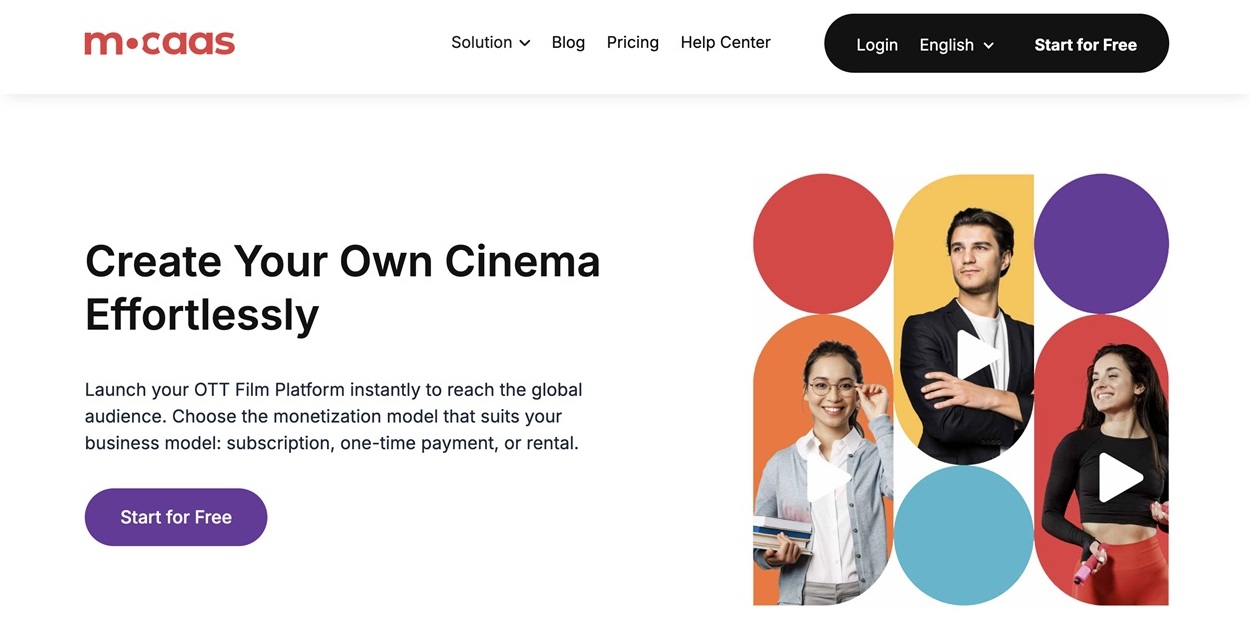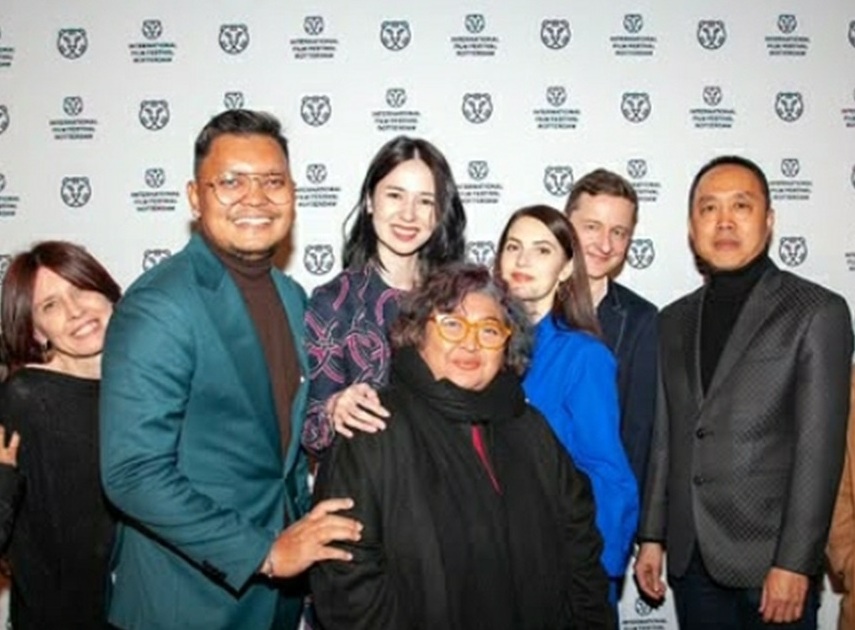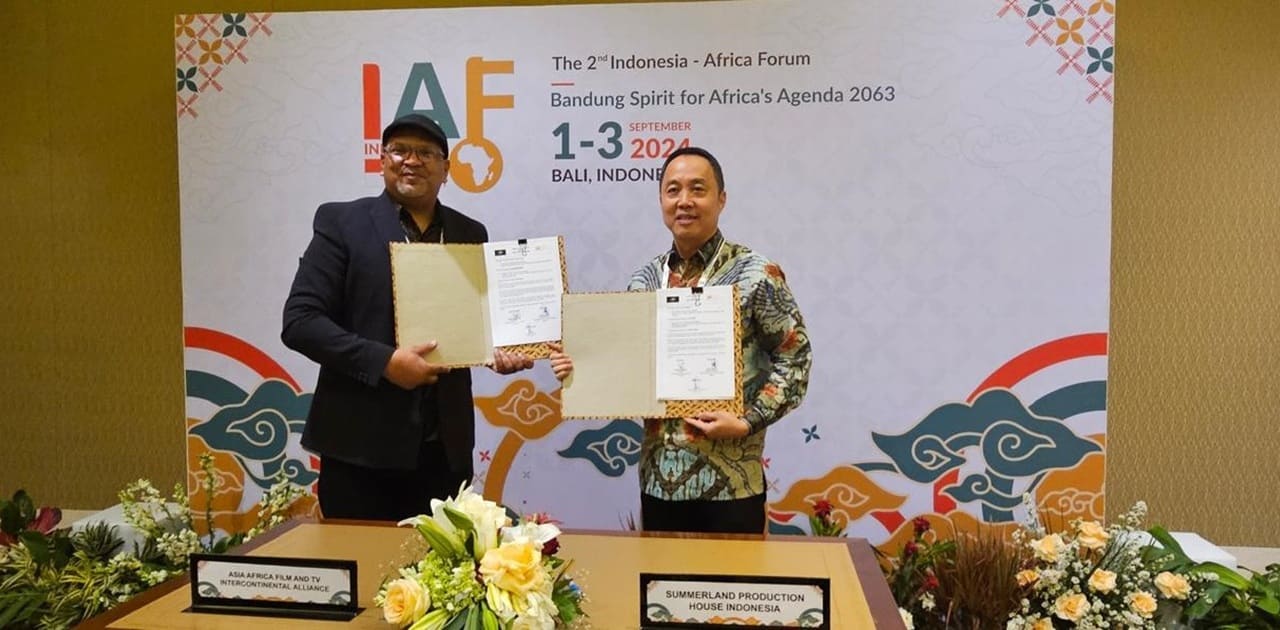Heaptalk, Jakarta — The film industry is one of the creative industries demonstrating the most positive growth. The Ministry of Tourism and Creative Economy recorded 55 million cinema-goers in Indonesia throughout 2023. This number increased by 50% to 78 million viewers by the 51st week of 2024, as reported by Katadata. Conventional cinemas and digital channels, including over-the-top (OTT) platform, primarily contribute to the industry’s revenue streams.
Seeing the magnitude of this potential, Wendra Lingga Tan, an executive producer at Summerland Films, is optimistic that Indonesian cinema will record more positive growth trends in the coming years. This optimism aligns with the report by PWC and LPEM Faculty of Economics and Business at the University of Indonesia, which predicts that the total revenue of the screen industry, including film, animation, and video, will grow from Rp90.9 trillion in 2022 to Rp09.6 trillion by 2027. The report also calculates that every Rp1 trillion increase in screen industry revenue can impact Rp1.43 trillion in economic output, contribute Rp892 billion to gross domestic product, and create 4,300 new jobs.
The development of this industry is not only about the cinema business as a conventional platform, but has also penetrated digital platforms, including OTT media. This technology makes public access to movies even wider. In addition to long and short films, OTT platform also provides television shows, as well as series aired by various production houses.
Developing OTT platform

Rather than focusing on conventional cinema screenings, Wendra sees opportunities in the digital format, specifically through OTT platforms. OTT platforms are known as media services that provide video or streaming content directly to viewers over the internet. Some global players are Netflix, Amazon, Prime Video, Hulu, and Disney+. Many global OTT platforms already operate in the country, but local ones are still very limited.
To fuel his ambition, Wendra and his partners founded a video streaming platform company called Mocaas. With strong R&D in Indonesia and backed up by a robust cloud platform company, desktopIP, founded by his partner, Phidi Soepangkat, Mocaas aims to be the leader in the country’s video streaming market.
“We have Mocaas as a local OTT platform and hope that this platform can accommodate independent investors who do not have much space in cinemas. We can broadcast with a profit-sharing scheme. I invite film creators, especially independent investors like myself, to start utilizing OTT platforms to be more competitive in this rapidly growing market,” Wendra said to Heaptalk.
Creating bigger economic value
In more detail, Wendra revealed several challenges independent production houses face, including Summerland Films, such as limited screen allocation, short screening times, and uneven distribution across cinemas in Indonesia. According to him, the challenge is not experienced by well-known production houses as they usually get a large screen quota for an extended period and locations in all cinemas in Indonesia.
He further voiced, “Hence, there is a tendency for independent production houses or investors like me to be given a small number of screens, around 40-60 screens, and not spread throughout Indonesia. We are given a screening time of only one week to ten days. How can we profit?”
Hence, the presence of Mocaas is expected to boost revenue specifically sourced from digital channels, breaking the challenges of screen limitations and broadcast periods. Not only the latest releases, filmmakers can also broadcast old film assets, festival films, and short films to create bigger economic value. Wendra stated, “Mocaas accommodates filmmakers whose productions have not had the opportunity to be listed in large OTT platforms such as Netflix.”
Regarding monetization, film creators can sell their contents in Mocaas in rupiah and US dollars through bank transfers and e-wallet payment methods. Further, creators can control their pricing and business model as all viewer traffic will flow to their platform, not Mocaas. This flexibility allows creators to no longer rely on existing platform algorithms.
Taking Indonesian films to the international stage

In advance, Wendra is ambitious about taking Indonesian films to the international stage. Collaborating with director Razka Robby Ertanto at Summerland Films, Wendra has brought two Indonesian films, Women in Rote Island (2023) and Yohanna (2024), to the International Film Festival Rotterdam. “My vision as an investor is to take Indonesian films internationally. I chose director Razka Robby Ertanto as a partner, who indeed has a track record of successfully directing several films that went international, such as Ave Maryam (2018) and Jakarta vs Everybody (2020),” Wendra explained.
Yohanna is proof of Wendra’s sincerity in realizing this ambition, as the film is produced in collaboration with three countries: Indonesia, United Kingdom, and Italy. Denis Krupnov is a film producer and co-founder and producer at Reason8, an international film sales and production company headquartered in London, UK. Chiara Barbo is a film producer headquartered in Trieste, Italy, and Andra Magnani is a director, screenwriter and producer headquartered in Rome, Italy.
Wendra added, “One form of this three-country collaboration is distribution. They (producers in England and Italy) distribute the film in Europe, while we distribute it in Indonesia. Thus, Indonesian films can be distributed throughout Europe. Going international is not solely about entering festivals but also distributing cinemas across European countries.”
Partnering with South African representative

Last year, Wendra represented Summerland Films in signing a cooperation contract with the Asia Africa Film & TV Intercontinental Alliance (AAFTVIA), which its Executive President Makkie Slemong represented. This cooperation was facilitated by the Consulate General of the Republic of Indonesia (KJRI) in Cape Town, South Africa at the 2nd Indonesia-Africa Forum (IAF) in Nusa Dua, Bali on April 9, 2024.
In this cooperation, AAFTVIA provided expertise and assistance to the Summerland production house to produce a film that will be the first cinematic work produced by South Africa and Indonesia. This film carries a love story with the background of the tsunami tragedy in Aceh in 2004 and the relationship between the two countries. This cooperation is expected to continue in the future, both in film production and joint content creation.
Despite international ambitions, Wendra remains confident in the great potential of the domestic film industry. This country has many cinema screens, showing many film titles in a year. The cinema audience in Indonesia is also quite large. Therefore, he hopes that one day, Indonesia can host an international film festival.











